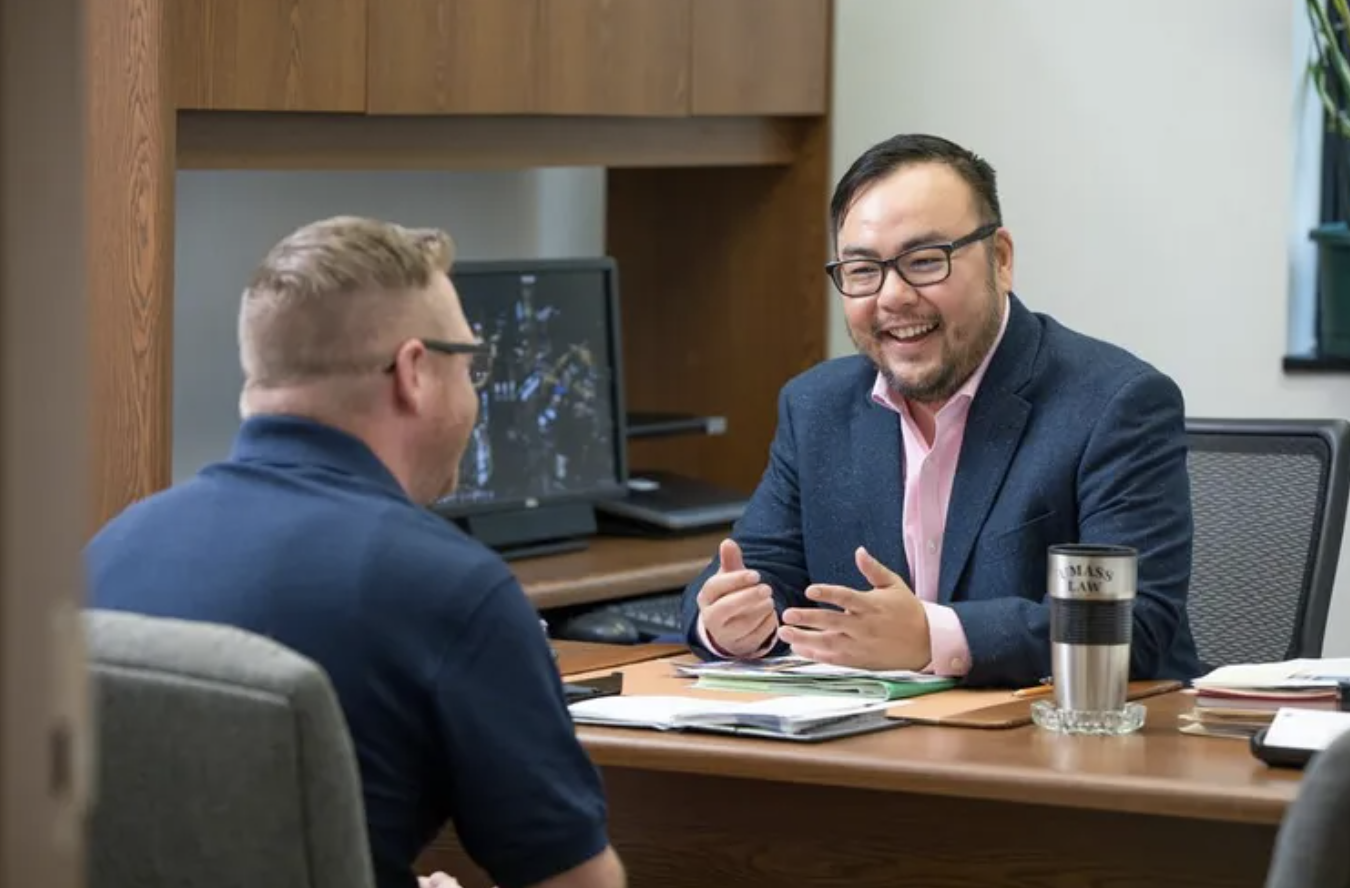Professor Jeremiah Ho authors chapter on teaching contracts through a critical race theory lens
Chapter offers techniques for teaching contract law with greater inclusiveness

Associate Professor of Law Jeremiah Ho, whose research focuses on issues of law and inequality, especially in the context of race and sexuality, has authored a chapter on teaching contract law that incorporates critical legal and race theory.
The chapter, “Uncovering Bias: Teaching Contracts Critically,” appears in the book entitled Integrating Doctrine and Diversity: Inclusion and Equity in the Law School Classroom. The book will be used primarily by law professors as a guide for teaching law with greater awareness of biases to inculcate more socially conscious and justice-centered practitioners.
Editors of the book project are law librarians and professors from law schools at Roger Williams University, the City University of New York (CUNY), the University of San Diego, and Rutgers University (Camden). Prominent authors in the legal academy include Angela Onwuachi-Willig (Dean, BU), Nancy Leong (Denver), Ruthann Robson (CUNY), Joseph Singer (Harvard), Rebecca Tushnet (Harvard), and Noah Katz (UCLA).
“The book is relevant to our contemporary discussions on diversity in the legal academy as the problems of systemic inequality in our society have surfaced in our current national consciousness more so than any other time before,” said Ho. “Especially with the extraordinary events in 2020 and our ongoing path to dealing with Covid-19, we see structural inequality in various places in our society and the law has been complicit in furthering such inequality.”
According to Ho, a professor of contract law, remedies, and trusts & estates, legal pedagogy can affect the way students and professors view the law—meaning that the way we teach law can inadvertently allow certain biases to come into the classroom. “As a result, as lawyers, we sometimes inadvertently bring such biases into the way law is created and practiced, which can reinforce various types of structural inequality,” he said. “The book and the various chapters—including mine—seek to shed light for other law professors on how to be more inclusive when teaching our respective law subjects. My subject happens to be in contract law; my chapter is about teaching awareness of how the rules of American contract law may carry certain unconscious biases, to allow students to understand how such biases may transfer into law practice, and why we ought to try making American contract law less pernicious and exclusive.”
Ho's most recent publication focuses on teaching first-year contract law with a critical focus on anti-racism and inclusion. “In particular, I discuss how to teach contracts by underscoring the tendency in American contract law to over-emphasize assumptions and biases about purchasing and bargaining power—especially when such assumptions and biases are ordered through an established objective theory of contracting that attempts to act neutrally but actually proliferates status quo norms and replicates racial, gender, and class hierarchies.”
Esteemed member of UMass Law faculty
Professor Ho joined the UMass Law faculty in 2012. Last year, he received the Manning Prize for Teaching Excellence, awarded annually to one faculty member at the entire university, for his exemplary dedication to students and the campus community. He has been named Professor of the Year a record of six times by the UMass Law Student Bar Association.
As the UMass Law Review's research and scholarship advisor, Professor Ho works closely with students on their research and scholarly writing. An article he co-wrote with the student editor-in-chief was recently published in the Harvard Journal on Legislation.
Professor Ho has published in leading law journals at Harvard, Yale, Georgetown, the University of California, Davis, Marquette, Utah, and Kentucky, as well as the Journal of Legal Education. His two most recent articles on LGBTQ legal advancements merge critical legal studies and race theory tenets into how to interpret progress for LGBTQ individuals. The articles are “Queer Sacrifice in Masterpiece Cakeshop” from the Yale Journal of Law and Feminism (published in spring 2020), and “Queering Bostock” from the American University Journal of Law, Social Policy, and Gender (published in fall 2021).
“Because contract law is so prevalent in the way we further our everyday lives—in our work, in our travels, in our purchases, in how we sustain ourselves—it is important for law students to recognize how the biases that American contract law possesses toward marginalized groups can make human flourishing difficult for some and not others. In that way, my chapter offers a jumping-off point for law professors who want to be more aware that the way we teach contract law can further these societal inequalities. I’m hoping it motivates colleagues to be creative in their teaching when it comes to recognizing these issues and advancing pedagogy.”